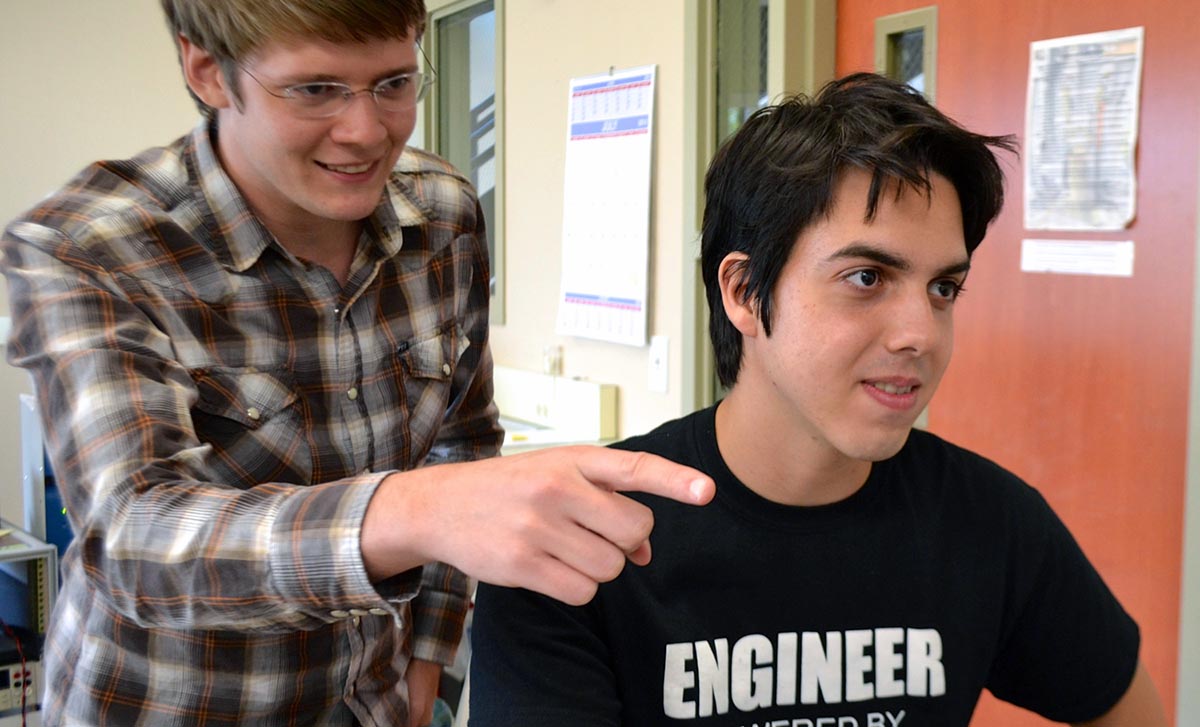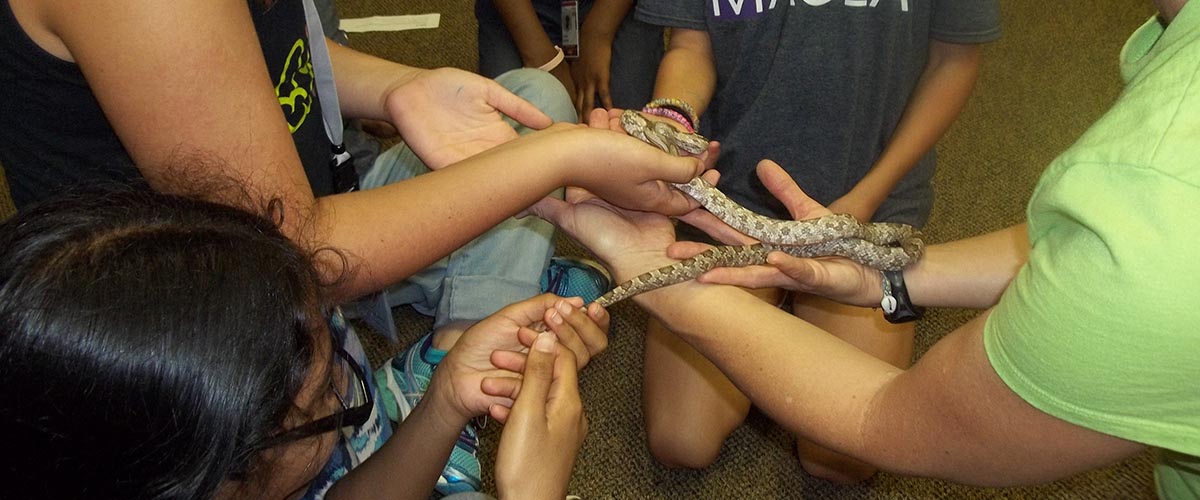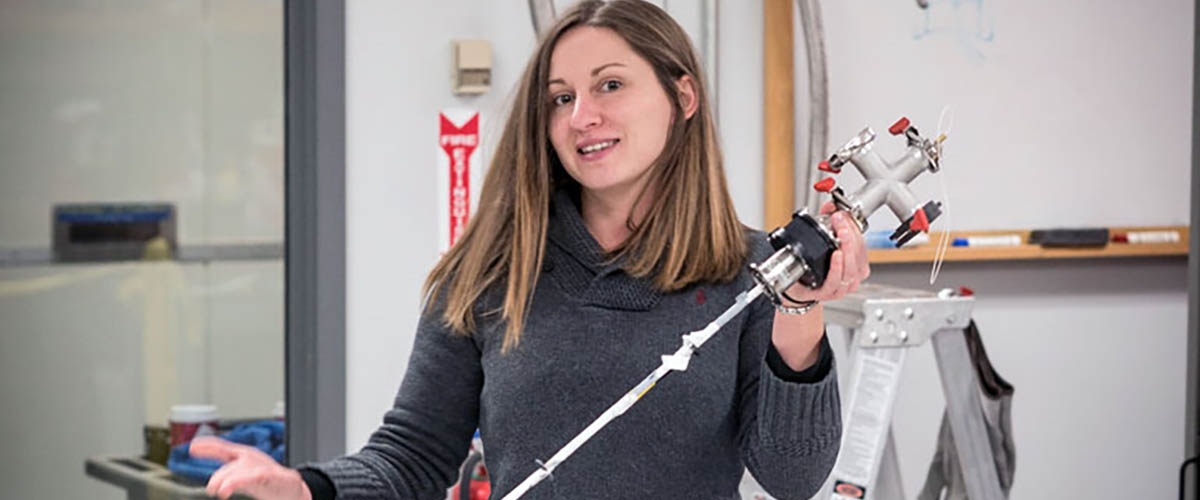"Without a doubt, my Ph.D. advisor, Dr. James Brooks. He taught me to think outside the box and to believe in the impossible. He had this contagious excitement for discovery and, although he passed away a few years ago, his excitement still reverberates throughout the scientific community."
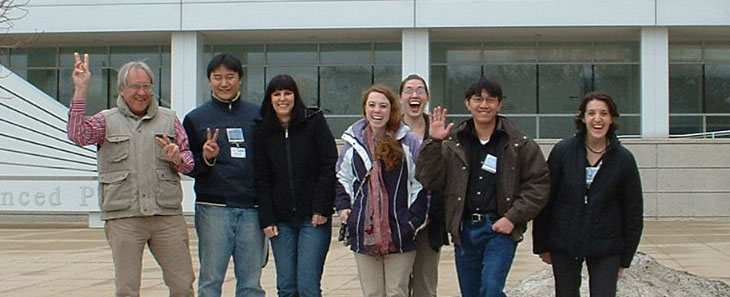
James Brooks (far left) with mentees, including Elizabeth Green (back row, with glasses).
— Elizabeth L. Green, Physicist, Dresden High Magnetic Field Laboratory
"It would be Jimmy Eng. He's an electrical engineer and programmer at the University of Washington who invented the first database search algorithm for proteomics. He was willing to teach me how to write computer code in C++. He sat over my shoulder, even though I wasn't a programmer or trained in that way. He was willing to do whatever it took to get me to learn that. He's also very, very smart but has a lot of humility to go with it."
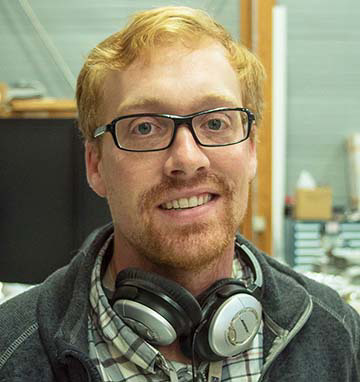
— Chad Weisbrod, Research Scientist, National High Magnetic Field Laboratory
"Probably my graduate school advisor, John Singleton. He was extremely motivating, and he worked really hard. He was just a really, really inspirational guy to do experiments with. … I guess everybody else I’d worked with before was extremely focused on one particular thing. But he was interested in a bunch of different things. And that was eye-opening for me. That was what was really very different about him."
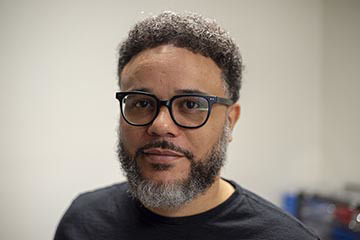
— Ali Bangura, Physicist, National High Magnetic Field Laboratory
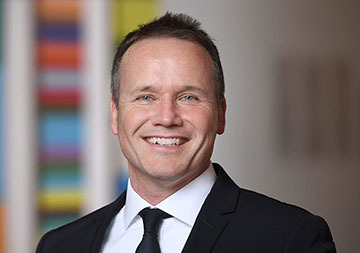
"My most influential mentor is Adalbert Mayer-Heinricy, professor of physics and biophysics at the University of Bremen, Germany. In 1989 I was a fifth-year diploma student in physics at the University of Leipzig, in what was then East Germany. When the Berlin Wall was opened, the first thing I did was search the physics department at the University of Bremen for an intriguing topic and inspiring supervisor for my diploma thesis. Most professors turned me down on the grounds that my East German curriculum and certificates might not be in full alignment with the guidelines of the university. Professor Mayer-Heinricy was not scared by the guidelines, and said that he would find a way or make one. With this courage and encouragement he welcomed me as a diploma student in his group; work I did then triggered my interest in magnetic resonance imaging (MRI). I have enjoyed an exciting and productive career since. Professor Mayer-Heinricy planted the seed for my career in magnetic resonance. He still closely follows my research and also loves dancing tango at the age of 84."
— Thoralf Niendorf, Head, Berlin Ultrahigh Field Facility, Max Delbrück Center for Molecular Medicine
"Probably the most important mentor I had was Brian Pettitt, a theoretical chemist and my undergraduate advisor at the University of Winnipeg. He absolutely insisted that I needed an interdisciplinary approach to my education and forced me to take a wide range of courses in physics, mathematics and chemistry. When I asked him once about which area was the most important, he said that they all were equally important, and he was right! He taught me that science does not have boundaries, and I should follow my passions."
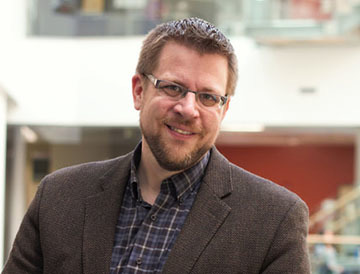
— Chris Wiebe, Chemist, University of Winnipeg
"The best mentors of mine are Prof. Tatsuo Okano and Prof. Katsuyuki Fukutan of the University of Tokyo, who were my Ph.D. supervisors. They were so patient that they let me find the research theme myself and allowed me a high degree of freedom. Rather than guiding directly, they supported me and my research from one step away, like parenting. Such a way of supervising is more like mentoring to me, and I liked it."
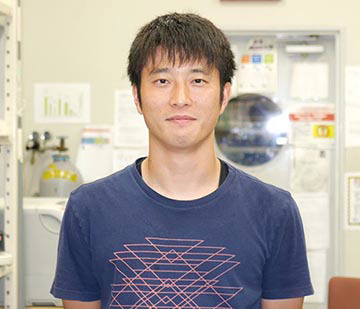
— Akihiko Ikeda, Research Associate, Institute for Solid State Physics, University of Tokyo
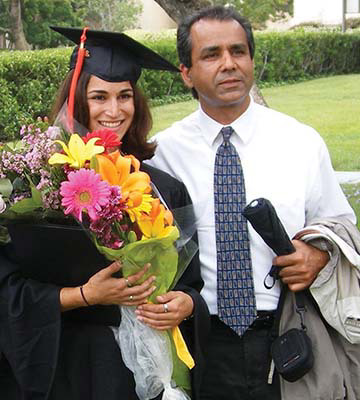
Hannah and Tariq Shafaat
"My dad, an engineer, was a huge inspiration and mentor to me as a young scientist. He always pushed me and my brother (who also became a chemist) to really understand how things worked. He coached our Science Olympiad teams (to victory, I might add!) and encouraged us to create and modify our own tools and toys when commercial ones didn't meet all of our needs."
— Hannah S. Shafaat, Physical Chemist, The Ohio State University
"My most influential mentor as a young scientist was Marshall Dixon of Butler University in Indiana. He believed that smart young people, women or men, could learn quantum mechanics while still in high school, and the training I got from him, and the confidence he had in me, extended their influence throughout my college years and beyond. I am still in contact with him, and he is still teaching quantum mechanics to high school students, now at Cathedral High School in Indianapolis."
— Barbara A. Jones, Research Staff Member, IBM Almaden Research Center
"My most influential mentor as a young scientist was (and still is) Joe Thompson because of his scientific integrity, hard work and ability to guide his mentees into becoming independent scientists. Enabling young researchers to think critically by themselves is challenging, and Joe excels at it."
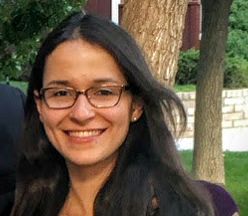
— Priscila Rosa, Physicist, Los Alamos National Laboratory




